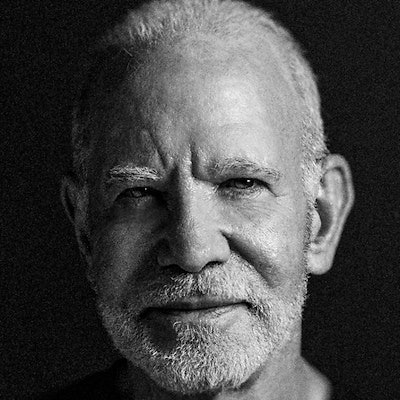
Medicare offering adult dental benefits is a "when," not an "if." The inevitable addition of oral healthcare to Medicare will dramatically affect dental practices, third parties, and suppliers across the U.S.
The evidence tying better oral health to better health outcomes at lower costs for many systemic issues is steadily pushing the systems behind Medicare to include dental coverage. As health expenditures increase, identifying potential solutions to improve the oral health status of the adult Medicare population has moved from high interest to the edge of committed action.
With data consistently showing the majority of Medicare beneficiaries do not have oral health coverage, dentistry is not prepared for the tidal wave of new patients -- or the extent to which Medicare will reshape everyday practice.
Medicare's wide-reaching impact
 Dr. Marc Cooper.
Dr. Marc Cooper.The U.S. Centers for Medicare and Medicaid Services (CMS) now clearly recognizes the oral-systemic link. Without dental care, health outcomes are poorer, care gaps expand, and costs skyrocket. With its vision that all "CMS beneficiaries have achieved their highest level of health and disparities in healthcare quality and access have been eliminated," adult dental care has moved onto the front burner. And that burner is being turned up to high.
The payers, hospitals, and physicians are also now acutely aware of the cost of untreated dental disease. Medicare offering dental services would decrease their burden dramatically. And given where medicine is going -- value-based care, capitated reimbursement, pay-for-performance -- the payers, hospitals, and physicians will increasingly support Medicare's entrance into the dental industry. It will make their lives easier, and they'll all be able to keep more money.
If you thought dental preferred provider organization (PPO) rates were terrible, this is your wakeup call. Prices set by Medicare directly affect prices paid by private insurers throughout the healthcare system. This is because many private insurers simply adopted Medicare's reimbursement levels.
The influence on dental fees and copays will be direct -- just as hospitals and physicians are directly affected by Medicare's fees, diagnostic codes, and procedure monitoring.
The time to act is now
Private practice dentistry, particularly solo practices or small groups, cannot exist in a Medicare environment as we know it. But given the tremendous need for adult dental care and the enormous cost savings due to better health outcomes when adults receive routine dental care, the pressure is on for Medicare to act -- with the full force of the federal government behind it.
Medicare is now off the bench, standing on the sidelines, and ready to come onto the dental field. Unfortunately, dentistry will wait until Medicare is already up to bat and swinging, then react, complain, and whine rather than earnestly considering what to do in advance.
So what changes will dentistry need to make to accommodate Medicare? Every client I speak with inside dentistry shrugs his or her shoulders on that question. Dentists think they will have an option not to take Medicare and simply go fee-for-service. However, I wouldn't bet on it.
I certainly don't blame dentists and practice owners. With the long history of being an unregulated, insular industry based on a fee-for-service model and for-profit paradigm, the fear of opening the door of uncertainty as Medicare steps in is understandable. Who can blame them for keeping their blinders on?
But Medicare is at your door. And it doesn't need an invitation to come in.
I strongly recommend that the ADA, the Association of Dental Support Organizations, the American Academy of Dental Group Practice, and all the other "A's" in the dental industry realize that Medicare is coming onboard and that dentistry convene a meeting specifically to address how Medicare will affect the dental industry.
That's because Medicare is coming. And with it are the federal and state governments, payers, hospitals, and 37 million uninsured older adults.
Dr. Marc Cooper is the president of MBC Consultants. Cooper has worked throughout the healthcare industry during his career, with the majority of his clients being in the dental industry. His current focus is coaching leaders, dentists, and senior executives on how to effectively navigate their organizations and lead their respective teams during this period of tremendous uncertainty.
The comments and observations expressed herein do not necessarily reflect the opinions of DrBicuspid.com, nor should they be construed as an endorsement or admonishment of any particular idea, vendor, or organization.



















